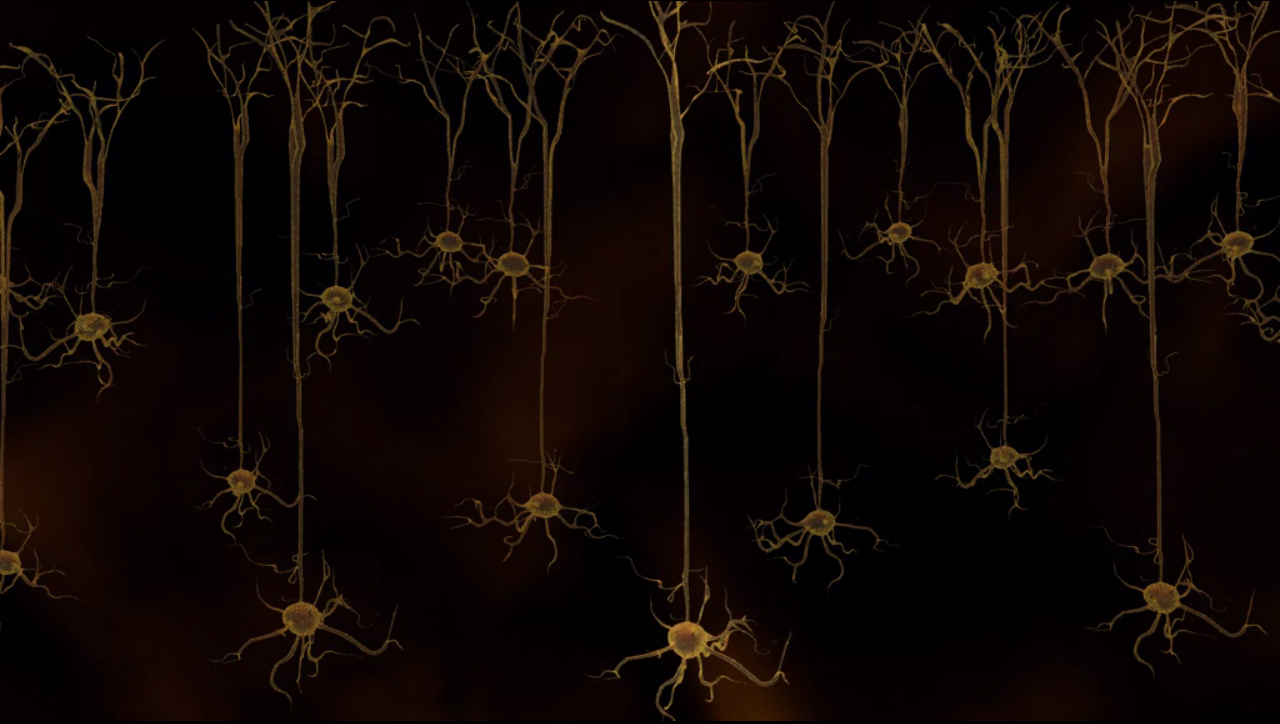More Info
Script
Intramembranous ossification is a process by which membrane bones such as flat bones of the skull, are formed. The process begins with mesenchymal cells aggregating within various regions of tissue. Once aggregated the mesenchymal cells differentiate into osteoblasts but maintain their original shape. After some time the aggregated osteoblasts begin secreting a bone matrix called the osteoid, which becomes mineralized due to the deposition of calcium via the blood vessels. The now calcified osteoid traps the initially aggregated mesenchymal cells forming an ossification center and concluding the interstitial process of flat bone formation. The blood vessels located in the vicinity continue to play a role in intramembranous ossification by transporting new osteoblasts as well as osteoclasts to the surface of the ossification center. Appositional growth begins when new osteoblasts arrive at the surface of the calcified ossification center. The newly arriving osteoblasts surround the established ossification center and begin depositing osteoid in an appositional manner. The newly deposited osteoid will become mineralized just as before, trapping the osteoblasts within and increasing the growth radius of the ossification center. The osteoclasts then serve to remodel the newly formed bone matrix that is being laid down by the osteoblasts. This process continually repeats causing the bone tissue to expand and remodel. The interstitial and appositional growth processes encapsulate not just one ossification center but rather occur at various regions within the tissue forming multiple ossification centers, which ultimately fuse together forming a flat bone.
Subject
Flat bone formation, Osteoid mineralization, Osteroblast formation, Calcium deposition
Type
Animation
Format
MPEG-4
Date
02/28/2014
Contributor
Ching-Jung Chen, Sara Daoud, Abraham Kierszenbaum, Robert Levy, Jazmine Rogers, Aleksandr Vinkler
Publisher
The City College Libraries, New York, New York
Identifier
ANI005
Language
English
Rights
Intramembraneous Ossification by City College of New York Digital Scholarship Services is licensed under a Creative Commons Attribution 4.0 International License.

